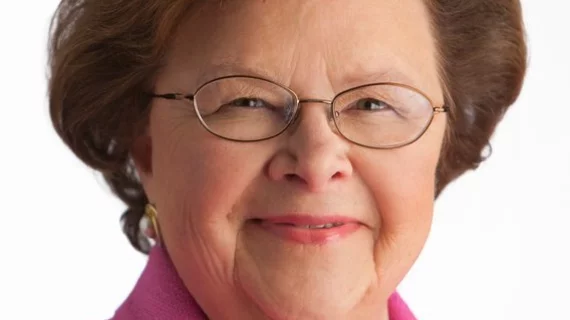Mikulski counters USPSTF draft recommendations in letter to Burwell
Senator Barbara Mikulski, D-MD, responded to the latest United States Preventive Services Task Force (USPSTF) draft breast screening recommendations by sending a letter to HHS Secretary Sylvia Mathews Burwell, calling for the continued availability of free annual mammograms for women ages 40 and older.
“We know that early detection of breast cancer offers women their very best chance at a cure and at survival,” the senator said in her letter. “Mammograms are essential for that early detection.”
Mikulski already has a history of advocating for annual mammograms. In fact, it’s her Women’s Preventive Health Amendment—which became law when President Obama signed the ACA in 2010—that presently ensures women ages 40 and older can receive free mammograms.
The USPSTF’s draft recommendations could potentially change all of that, however, because only biennial mammograms for women ages 50 to 74 received the “B” grade that is required for a diagnostic test to be covered by the ACA.
“Unfortunately, today’s draft recommendation coming out of the USPSTF threatens to erode the mammogram benefit in current law,” Mikulski said in her letter. “If the recommendation is finalized in its current form, the end result would be that only women aged 50 and older would be eligible to receive free mammograms on a biennial basis. I think this recommendation is short-sighted and could potentially put women’s lives at risk. Failing to identify women in their 40s with breast cancer and instead having them wait until age 50 to get a mammogram is not only a disservice, it is a travesty.”
The ACR and Society of Breast Imaging (SBI) released a joint statement Monday, saying the USPSTF draft recommendations would cost thousands of lives. The two organizations released another joint statement Tuesday, this time publicly supporting the senator’s letter.
Murray Rebner, MD, president of the SBI, agreed with Mikulski in the latest joint statement, pointing out the importance of hearing from the HHS.
“The Secretary of HHS has the power to mandate that private insurers and Medicare cover women for regular mammograms,” he said in the statement. “Since the USPSTF recommendations are linked by law to insurance coverage, the secretary needs to act now to confirm that women who want access to lifesaving mammography care are covered by their insurers for these exams.”
Rebner also spoke with RadiologyBusiness.com about the impact Mikulski has had on the breast cancer screenings conversation over the years.
“Sen. Mikulski remains a tireless advocate of mammography screening and its insurance coverage,” Rebner told RadiologyBusiness.com via e-mail. “We appreciate her leadership on the Women’s Preventive Health Amendment to the ACA that currently guarantees mammograms are covered. Thanks to her efforts millions of American women receive mammograms and thousands of lives have been saved.”
Rebner also touched on how much Mikulski’s presence will be missed when she retires. Mikulski, who has served longer in congress than any other woman in history, announced earlier this year that she would not seek re-election in 2016.
“It goes without saying that the breast imaging community and women will lose an important ally when she retires,” he said.
Shawn Farley, ACR director of public affairs, echoed Rebner’s high praise of Mikulski via email: “There's no one who can compete with her credibility nor commitment. She is the ideal spokeswoman for this issue and the ideal advocate.”

